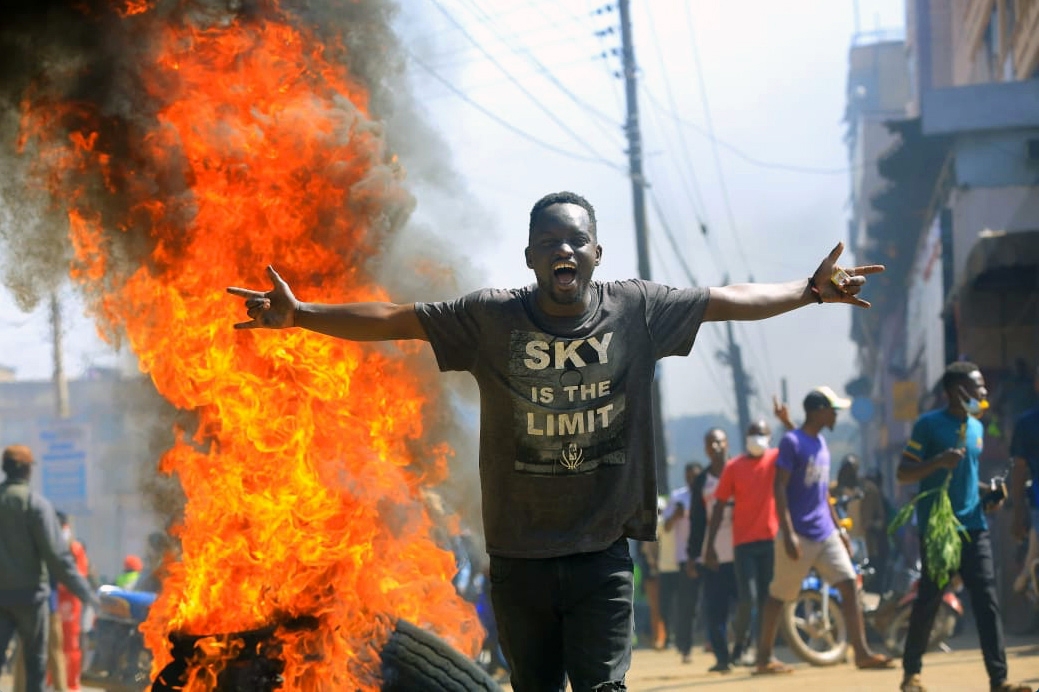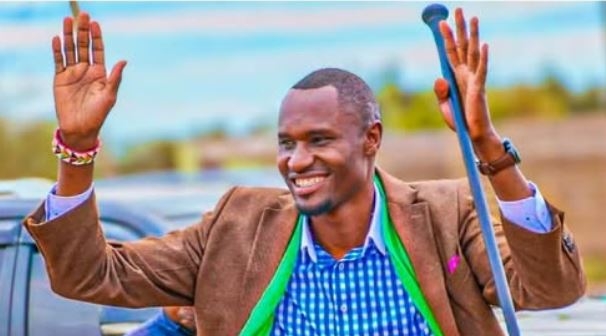The actions of a state in the international arena result from domestic policy and are aggregated from within to achieve set national interests.
To attain these national interests – trade, security, economic development, climate change mitigation, political stability and protecting international image, among others – states will engage bilaterally with other states, non-state actors such as financial institutions – Bretton Woods institutions, the Africa Development Bank -, international organizations such as the United Nations, regional blocs and other interest groups.
These engagements, being a give and take, contractual-based, reciprocal or interest-based in one way or the other have an influence in domestic policy making.
States negotiate trade and resource deals in a give and take arrangement, while the IMF and the World Bank set conditions for developing countries, ostensibly to adjust their economic policies to overcome the challenges they face or that led them to seek loans.
So, inasmuch as a state’s internal decision-making structure and domestic policy formulation will be informed by domestic factors towards achieving national interests, often selfish, it will at times be influenced by external factors in making certain compromises.
Such decisions will be influenced by the number, the scope and mutual compatibility of those interests, as well as the intensity with which they are held. .
Often, resources and technical and financial capacity are limited, thus necessitating collaboration.
DEVELOPMENT BLUEPRINT
As set out in the Vision 2030 blueprint, Kenya seeks to achieve certain development and economic goals central to its economic development policy between 2008-2030.
To ensure that the main projects under the economic pillar are implemented, investment in the nation’s infrastructure will be given the highest priority
After a diagnostic analysis of 20 sub-sectors in 2006-07, experts working for then President Mwai Kibaki arrived at six priority sectors key to raising GDP growth rate to 10 per cent: Tourism, agriculture and livestock, wholesale and retail, trade, manufacturing, financial services, Business Process Offshoring and IT-enabled services.
For these sectors to perform, the Vision 2030 Board was convinced that Kenya had to be well-interconnected through a network of roads, railways, ports, airports, water and sanitation facilities, and telecommunications.
“Furthermore, to ensure that the main projects under the economic pillar are implemented, investment in the nation’s infrastructure will be given the highest priority,” the policy noted.
2014 FOREIGN POLICY DOCUMENT
Comes in the documented Kenya Foreign Policy 2014, which was, among other sources, informed by the Kenya Vision 2030 and the medium-term plans, previous Sessional Papers and manifestos of KANU and NARC, executive pronouncements and circulars.
Its economic pillar seeks to achieve robust economic engagement to secure socio-economic development in line with Vision 2030 and prosperity that will ensure Kenya becomes a middle-income and industrialized economy by 2030, just seven years away.
This has necessitated more commitment to cooperation with various international friends.
The 2014 policy document explicitly notes that to attain its objectives, Kenya will seek to diversify its economic relationships and partnerships, with increased focus on the emerging economies and economic zones.
These efforts, the policy notes, have collectively redirected Kenya’s new era of economic diplomacy, “which seeks to promote a pragmatic approach that best illustrates commitment to strengthen relations with all countries and regions based on shared mutual interests”.
Traditionally, the friends were from the West, especially the US and the UK. But its geopolitical and geostrategic position has also attracted powerful allies from the East.
Under President Kibaki, there was shift in orientation to the East in what was termed as the “Look East Policy”. This meant closer economic ties with China as an alternative to the West.
This is, however, not to mean there were no close ties prior.
KENYA-CHINA RELATIONS
China and Kenya on December 14, 2023, marked 60 years of diplomatic relations. China was the fourth country to recognise Kenya’s independence.
It is, however, not until President Daniel Moi in 1978 - following the death of Mzee Jomo Kenyatta - that the relations got closer.
After 1965, relations were lowered to the chargé d'affaires level, which in the 1970s were gradually elevated to normal. This was due to the Cold War tensions, which reflected in the country between President Kenyatta and his Vice President, Jaramogi Oginga Odinga.
This was also the period after China State Council introduced legislation permitting specialised Chinese companies to operate overseas under the 'Go Out' policy in August 1979.
Unknown to some, one of the key projects delivered through the Kenya-China partnership at the time was the Moi International Sports Centre Kasarani in 1987.
It is, however, during the administration of President Kibaki between 2002-2013 (a period he had to deal with the global financial crisis of 2008) and President Uhuru Kenyatta (2013-2022) that the bilateral ties intensified a great deal in trade and infrastructure development.
Kibaki's so-called "Look East" foreign policy orientation deepened and expanded bilateral cooperation in infrastructure and trade, from where Uhuru over took from, given his troubles with the West over the ICC case, and the projects he pledged in his campaign.
The Chinese delivered Kibaki’s legacy project, the AfDB-funded 50km Thika Superhighway and are still involved in the Lamu Port South Sudan–Ethiopia Transport (LAPSSET) project, one of the biggest Chinese investments in Africa.
As part of the Belt and Rail Initiative, the project seeks to open up Kenya’s marginalized northern frontier, and connect Kenya to the Horn of Africa neighbours of Ethiopia and South Sudan.
According to Samriddhi Roy, the LAPSSET project will cost Kenya $25 billion, which is three per cent of Kenya’s yearly GDP.
In addition, the contract to build three modern port berths at a cost of $484 million was given to the China Communication Construction Company.
Harbour Engineering Company and China Merchant Holdings are undertaking the development and installations of ports, harbours, supply chain and distributions networks in Kenya.
President Kibaki’s foreign policy was largely economic-oriented, also a shift from President Moi’s peace and stability orientation.
By the time he left office, bilateral trade had increased from $250.5 million in 2003 to $2.8 billion at the end of 2012, according to the China=Africa Research Initiative at the Johns Hopkins University School of Advanced International Studies.
During Uhuru’s administration, the Chinese delivered the Mombasa-Nairobi Standard Gauge Railway and the Nairobi Expressway. Many other projects have been undertaken, all contributing to Kenya’s economic development, although coming with a debt burden.
With these close ties, however, there have been concerns about loans, fears of "debt trap" diplomacy, secrecy in deals and parastatals being at risk of being seized and trade imbalance, concerns the Chinese envoy in Kenya has termed as western-sponsored narrative.
DIPLOMACY FOR DEVELOPMENT
As indicated earlier, Kenya documented and launched its foreign policy in November of 2014, the first time since independence.
It lays out the diplomatic and international relations framework and guidelines through which Kenya seeks to fulfill its national interests as well as relate with other actors.
Foreign policy formulation, itself a careful and rational choosing amongst alternatives, seeks to develop the best approach to secure national interests in the chaotic international system.
Some scholars have evaluated Kenya's foreign policy practice as the function of an overly dependent state rather than an eager entrant in world affairs.
That her actions at different levels of the international system - bilaterally and multilaterally - are a result of her being entirely dependent on foreign capital. In this case, depending on China – not entirely - to finance and undertake her projects.
Kenya’s debt repayment towards China-funded projects more than doubled to a record Sh73.48 billion in the 2021-22 financial year on the back of increased clearance of principal sums after the grace period lapsed.
According to data published the National Treasury in 2022, the amount repaid to Chinese lenders skyrocketed to 135.15 per cent compared to Sh31.25 billion in June 2021, when a moratorium due to Covid-19 shocks was in place.
The cash was wired to Exim Bank of China and China Development Bank, the lenders, in two batches of Sh43.62 billion in the third quarter of the current fiscal year (around January) and Sh29.86 billion in July 2021.
DEBT: POLITICAL HOT POTATO
The debt issue has been a political hot potato that in one way influenced the 2022 general election outcome.
One of the political sides led by President William Ruto, then deputy president, criticized foreign borrowing mainly from Beijing, although China was not the biggest creditor.
This has had an impact on the foreign policy orientation on the current administration of President Ruto, who appears to be looking West, or at least seeking a balance between the East and the West.
But as President Ruto soon came to realize, there was no way he was going to ignore China, the second biggest economy, in his foreign policy and development and trade plan. There has been a clear dominant relationship with China that is hard to ignore.
So, just a year after assuming power, President Ruto made his maiden visit to China in October 2023 to attend the Third Belt and Road Initiative in Beijing, where he sought more loans to complete the SGR and link it with Uganda, the DRC and Congo Brazzaville as well as an additional $1 billion to complete stalled local projects.
Roads and Transport Minister Kipchumba Murkomen told Citizen TV he has in 2023 visited Beijing thrice seeking infrastructure financing.
On the onset of the Ruto administration, there was a slowdown on the relations with China, with the government pushing for more business relations, Public-Private-Partnerships and widening of the tax base and efficiency to reduce on borrowing.
However, the rapprochement early in the administration serves as a precursor that China, like it is in other parts of the developing world, will continue playing a role a huge role in Kenya.
Whether Kenya extracts honey or sugar from the "win-win cooperation" is up to the leadership's negotiation skills and interest for the country but China remains a critical player.

















